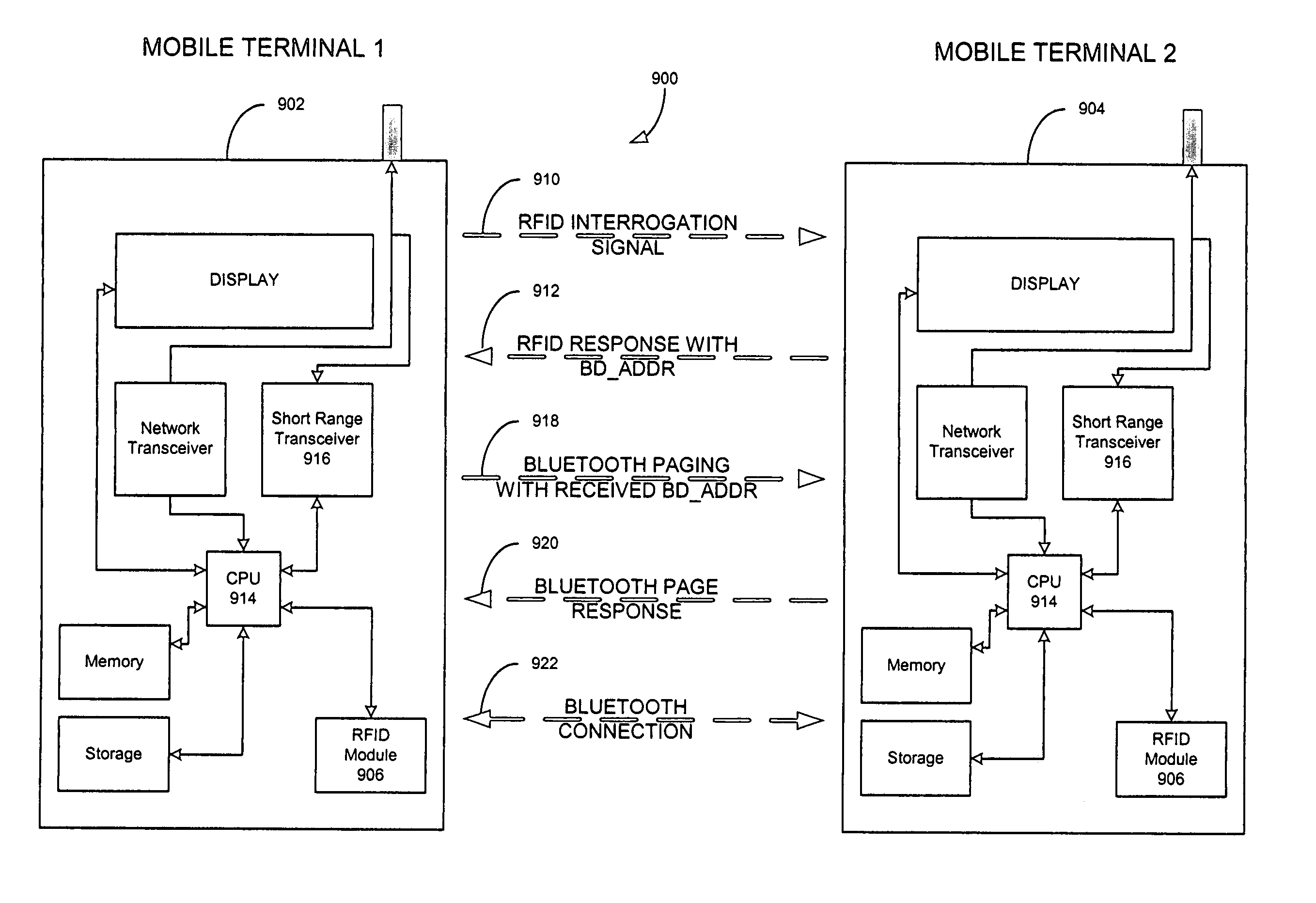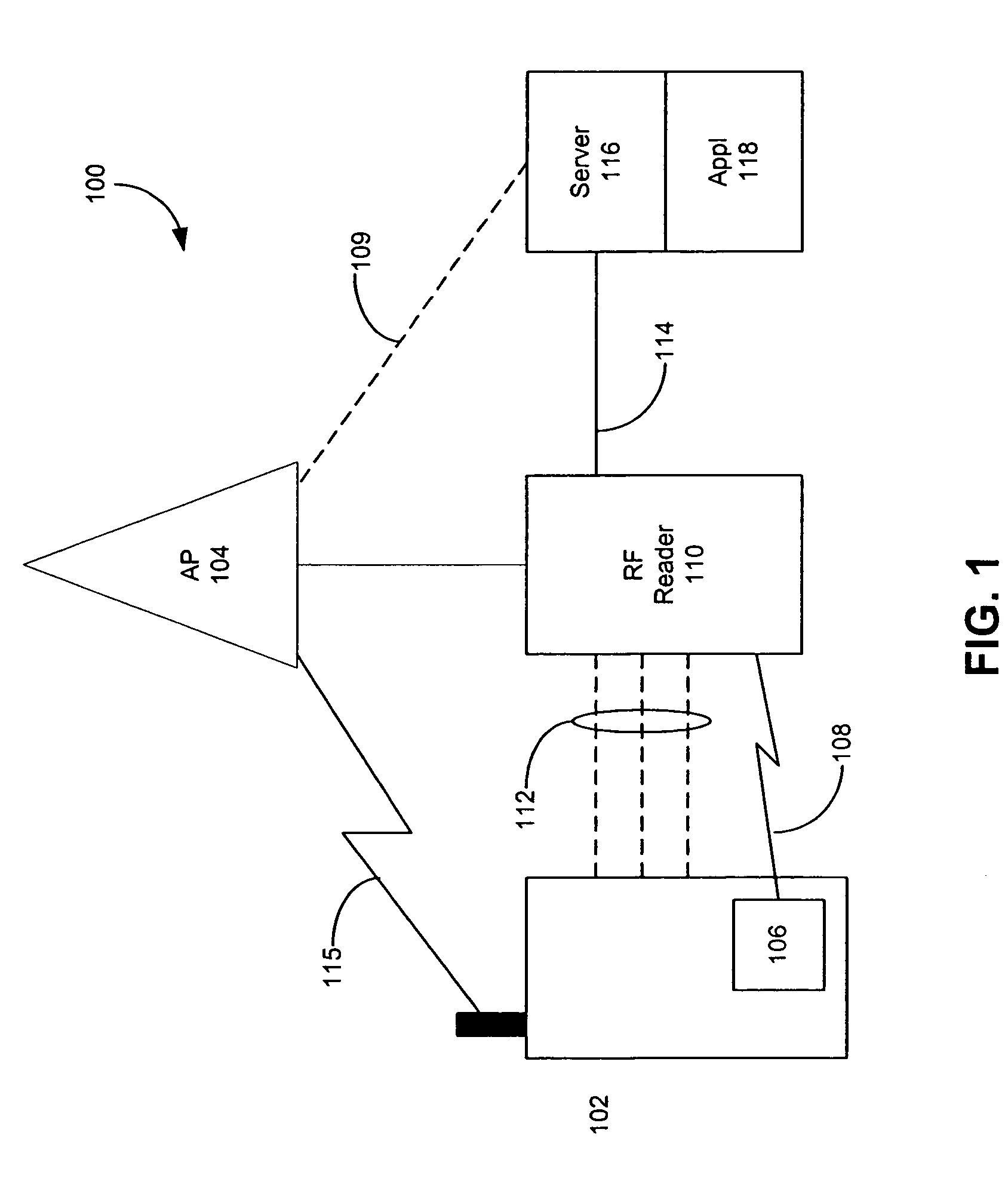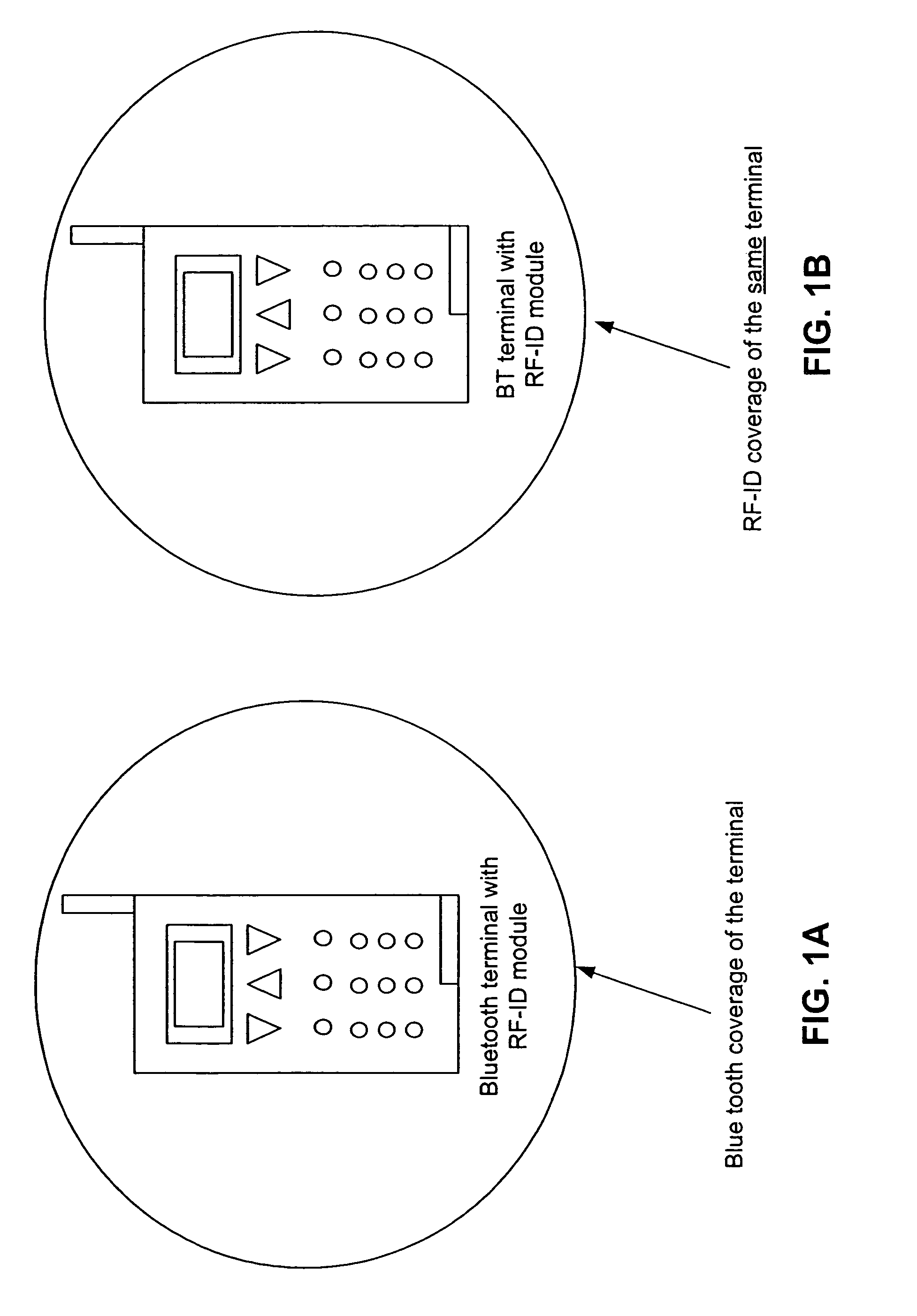Radio frequency identification (RF-ID) based discovery for short range radio communication with reader device having transponder functionality
a radio frequency identification and functionality technology, applied in the field of short-range communication devices, processes and systems, can solve the problems of restricting the use of bluetooth, long discovery time of bluetooth terminals, and too long device discovery time, so as to shorten the session setup time
- Summary
- Abstract
- Description
- Claims
- Application Information
AI Technical Summary
Benefits of technology
Problems solved by technology
Method used
Image
Examples
Embodiment Construction
[0044]In the following description of the various embodiments, reference is made to the accompanying drawings, which form a part hereof, and in which is shown by way of illustration various embodiments in which the invention may be practiced. It is to be understood that other embodiments may be utilized and structural and functional modifications may be made without departing from the scope of the present invention.
[0045]FIG. 1 discloses a system 100 incorporating principles of the present invention for RF-ID based discovery of Bluetooth terminals, which shortens the user identification time and speeds up session setup for interactive services between a terminal and a service application. The terminal 102 incorporates a RF-ID tag 106, which stores ID information, such as the Bluetooth terminal serial number of the terminal 102. The ID information including at least the Bluetooth serial number of the user terminal is transmitted by the RF-ID tag 106 via a radio link 108 to a RF-ID Re...
PUM
 Login to View More
Login to View More Abstract
Description
Claims
Application Information
 Login to View More
Login to View More - R&D
- Intellectual Property
- Life Sciences
- Materials
- Tech Scout
- Unparalleled Data Quality
- Higher Quality Content
- 60% Fewer Hallucinations
Browse by: Latest US Patents, China's latest patents, Technical Efficacy Thesaurus, Application Domain, Technology Topic, Popular Technical Reports.
© 2025 PatSnap. All rights reserved.Legal|Privacy policy|Modern Slavery Act Transparency Statement|Sitemap|About US| Contact US: help@patsnap.com



